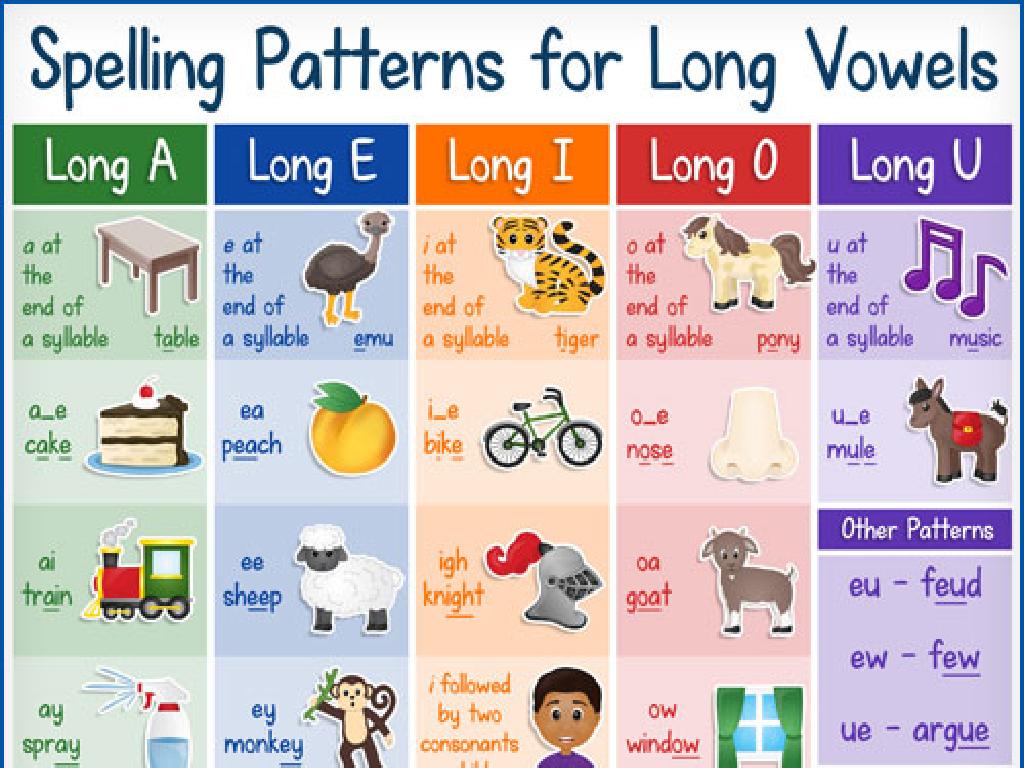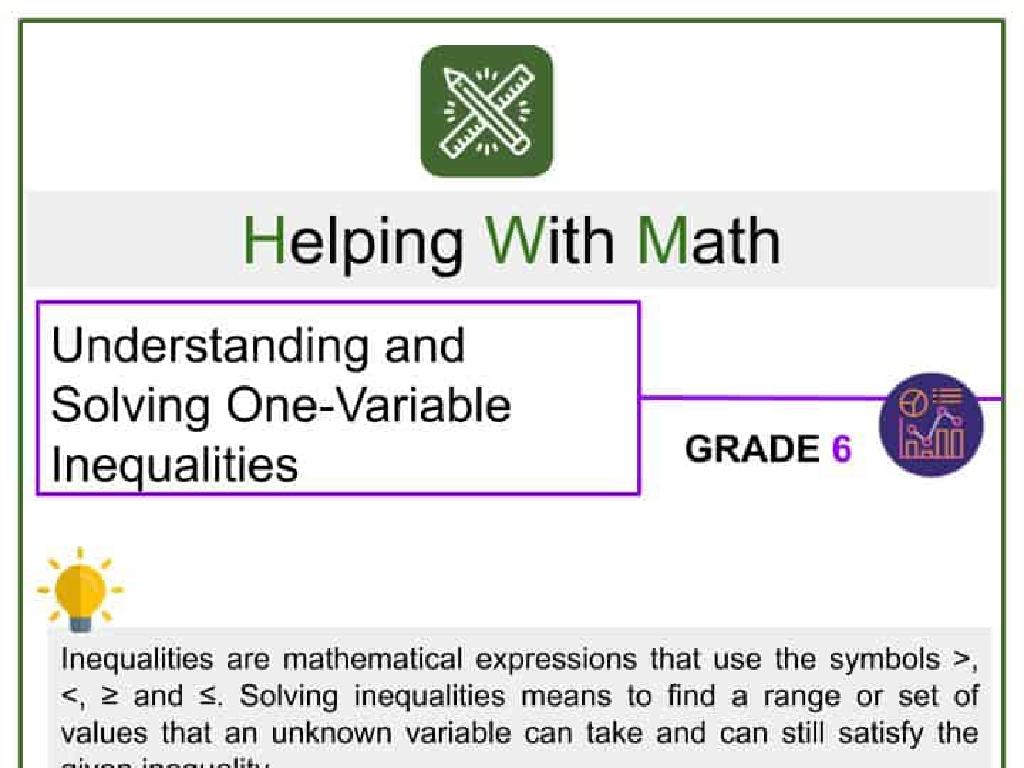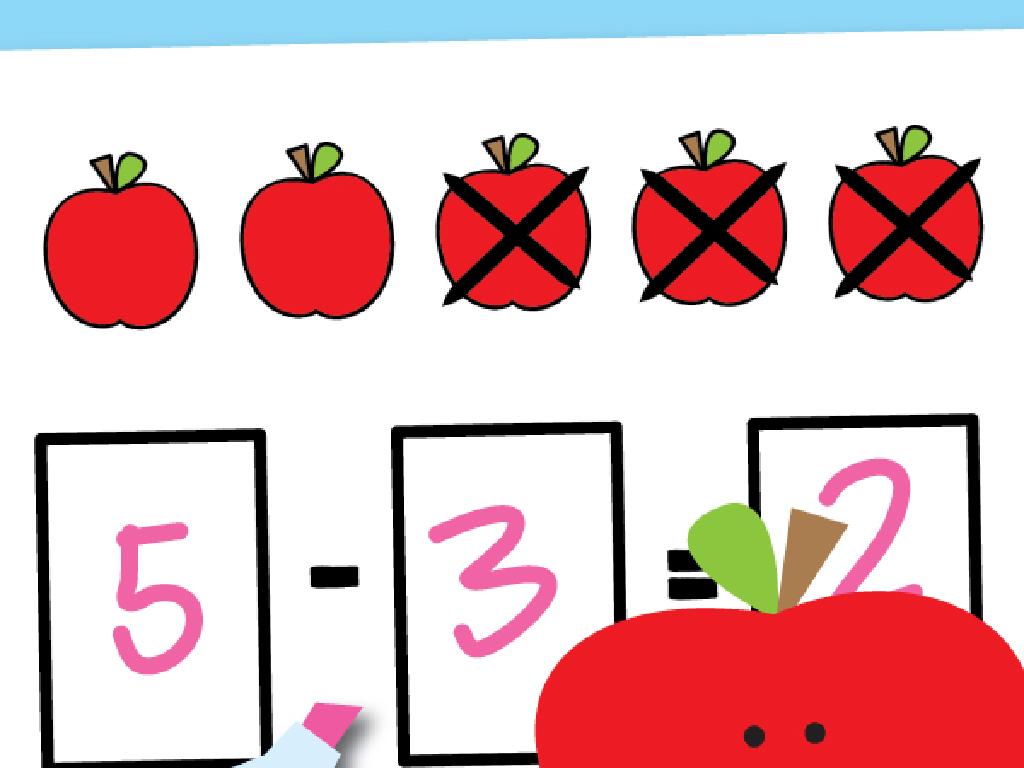Determine The Meanings Of Greek And Latin Roots
Subject: Language arts
Grade: Third grade
Topic: Greek And Latin Roots
Please LOG IN to download the presentation. Access is available to registered users only.
View More Content
Exploring Word Building Blocks
– Welcome to Language Arts!
– Discover Greek & Latin roots
– Roots are word parts that give meaning, like ‘bio’ means life.
– Roots help understand new words
– Knowing roots helps guess words’ meanings, like ‘biology’ or ‘biography’.
– Let’s learn and have fun!
|
Begin the class with a warm welcome and an introduction to the concept of Greek and Latin roots. Explain that these roots are like the foundation of a building; they hold up the meaning of many words we use today. Emphasize that by learning these roots, students will be able to deduce the meaning of unfamiliar words, which is a valuable skill for reading comprehension and vocabulary development. Engage the class with examples and encourage them to think of words they already know that might contain these roots. Make the learning process interactive and enjoyable by incorporating games or activities that reinforce the concept.
Exploring Word Roots
– Roots: the word’s foundation
– Roots give words their core meaning, like ‘spect’ means to see.
– Roots are like plant roots
– Just as roots support plants, word roots support the rest of the word.
– Many English words have Greek and Latin roots
– Words like ‘bicycle’ or ‘telephone’ have Greek and Latin roots.
– Prefixes and suffixes grow from roots
– Adding beginnings (prefixes) or endings (suffixes) changes the word’s meaning.
|
This slide introduces the concept of roots in language arts, drawing a parallel between the roots of a plant and the roots of a word. It’s important to convey to third graders that roots are the most basic part of a word, providing its essential meaning, much like how a plant’s roots are essential for its growth. By understanding Greek and Latin roots, students can better decipher the meaning of complex English words. Use examples like ‘spectator’ (spect – to see) to illustrate how a root can be the base of many words. Encourage students to think of words as living things that grow and change with the addition of prefixes and suffixes.
The Power of Greek and Latin Roots
– Many English words have Greek or Latin roots
– For example, ‘bio’ means life in Greek, as in ‘biology’.
– Understanding roots improves vocabulary
– Knowing that ‘tele’ means far can help you remember ‘telescope’.
– Roots help you guess word meanings
– If you know ‘graph’ means writing, you can guess what ‘autograph’ means.
– Become a word detective!
|
This slide aims to spark interest in the study of Greek and Latin roots by showing students how these roots form the foundation of many English words. By understanding common roots, students can become better at decoding unfamiliar words, which is a valuable skill for reading comprehension and vocabulary expansion. Encourage students to think of themselves as detectives, using clues (roots) to solve the mystery of word meanings. Provide examples and engage them in identifying roots in words they already know. This foundational knowledge will aid them in all areas of language arts.
Exploring Greek Roots in Words
– ‘bio’ means life
– Example: ‘biology’ – the study of life
– ‘tele’ means far
– Example: ‘telescope’ – see far away stars
– Break down words with ‘bio’
– Discover words with ‘tele’
|
This slide introduces students to the concept of Greek roots in English words, which helps them understand and determine the meanings of new vocabulary. ‘Bio’ is a common Greek root that students may recognize in various science-related terms, while ‘tele’ is often seen in words related to distance or communication. Encourage students to think of other words they know that include these roots. In the next class, we will explore these roots further by breaking down more complex words and discovering new ones. This activity will enhance their vocabulary and comprehension skills.
Exploring Latin Roots
– ‘aqua’ means water
– Example: ‘aquarium’ – a place with water for fish
– ‘scribe’ means write
– Example: ‘describe’ – to write details about something
– Discover more Latin roots
– Understand words better
|
This slide introduces students to the concept of Latin roots in English words, which helps them understand and determine the meanings of new words. Start by explaining that many English words are derived from Latin roots. Use ‘aqua’ and ‘scribe’ as examples to show how these roots form part of larger words and contribute to their meanings. Encourage students to think of other words they know that might contain these roots. The goal is for students to recognize patterns in word formation and expand their vocabulary through an understanding of word origins. In the next class, we can have a fun activity where students find and share words that include these and other Latin roots.
Activity: Grow Your Own Root Word Tree
– Pick a Greek or Latin root
– Write the root on the tree trunk
– Add branches with related words
– Think of words like ‘bicycle’ or ‘telephone’ for the root ‘cycle’ meaning ‘wheel’
– Share and explain your tree
|
This activity is designed to help students understand the concept of word roots and how many words are connected to a single root. By visualizing the root as the trunk of a tree and the related words as branches, students can see the relationship between the root and its derivatives. Provide examples of roots and related words to get them started. For instance, ‘spect’ means ‘to look’ and can lead to words like ‘inspect’, ‘spectator’, and ‘spectacle’. Encourage creativity in their trees and ensure they are prepared to explain how each word relates back to the root. This will reinforce their understanding of the root’s meaning and its application in different words.
Class Activity: Root Detective
– Team up with a classmate
– Search for words with roots
– Look for words around the room that come from Greek or Latin
– Record words and root meanings
– Use your ‘Root Detective’ worksheet to note them down
– Present your discoveries
|
In this engaging class activity, students will pair up to search for words within the classroom that have Greek or Latin roots. Provide each pair with a ‘Root Detective’ worksheet where they can write down the words they find and what they think the words mean based on their roots. After the search, each pair will have the opportunity to present their findings to the class, explaining the root of each word and its meaning. This activity will help reinforce the lesson on Greek and Latin roots and encourage collaborative learning. Possible words they might find include ‘television’ (tele – far, vision – see), ‘bicycle’ (bi – two, cycle – circle), or ‘microphone’ (micro – small, phone – sound).
Root Detectives: Conclusion and Review
– Celebrating our root detectives
– Roots reveal word meanings
– Greek and Latin roots are word parts that hold the key to the meaning of words.
– Use roots to decode new words
– When you find a new word, break it down to discover the root and what the word means.
– Keep being curious about words
|
Well done to all the students for their hard work in today’s lesson on Greek and Latin roots. Reinforce the idea that understanding these roots can unlock the meanings of many words in the English language. Encourage them to always be on the lookout for these roots when they encounter new vocabulary. Remind them that being a ‘root detective’ is a fun and useful skill that will help them throughout their lives. As they continue to read and learn, they should try to identify roots and use them to infer the meanings of new words. This skill will greatly enhance their reading comprehension and vocabulary skills.






